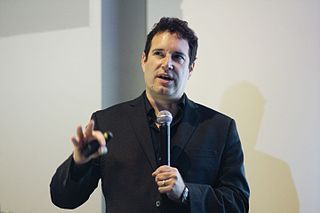A Quote by Alastair Reynolds
I don't think the computer will win the Booker, but no-one ever expected a computer to beat a chess grandmaster.
Related Quotes
I've never been much of a computer guy at least in terms of playing with computers. Actually until I was about 11 I didn't use a computer for preparing for games at all. I was playing a bit online, was using the chess club mainly. Now, obviously, the computer is an important tool for me preparing for my games.
I would say, you have a unique chance of learning more about the game of chess with your computer than Bobby Fischer, or even myself, could manage throughout our entire lives. What is very important is that you will use this power productively and you will not be hijacked by the computer screen. Always keep your personality intact.
To play chess on a truly high level requires a constant stream of exact, informed decisions, made in real time and under pressure from your opponent. What's more, it requires a synthesis of some very different virtues, all of which are necessary to good decisions: calculatioñ, creativity and a desire for results. If you ask a Grandmaster, an artist and a computer scientist what makes a good chess player, you'll get a glimpse of these different strengths in action.
One can think of any given axiom system as being like a computer with a certain limited amount of memory or processing power. One could switch to a computer with even more storage, but no matter how large an amount of storage space the computer has, there will still exist some tasks that are beyond its ability.
All experiments that are related to the games when you have humans versus machines in the games - whether it's chess or "Go" or any other game - machines will prevail not because they can solve the game. Chess is mathematically unsolvable. But at the end of the day, the machine doesn't have to solve the game. The machine has to win the game. And to win the game, it just has to make fewer mistakes than humans. Which is not that difficult since humans are humans and vulnerable, and we don't have the same steady hand as the computer.
It's interesting that the greatest minds of computer science, the founding fathers, like Alan Turing and Claude Shannon and Norbert Wiener, they all looked at chess as the ultimate test. So they thought, "Oh, if a machine can play chess, and beat strong players, set aside a world champion, that would be the sign of a dawn of the AI era." With all due respect, they were wrong.































